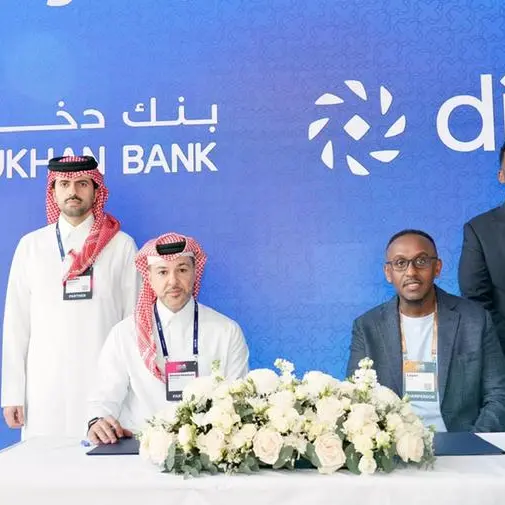- Five Memorandums of Understanding on cybersecurity cooperation are expected to be signed by Saudi’s National Cybersecurity Authority on the sidelines of the event to enhance international cooperation in fighting cybercrime and build up its cybersecurity capabilities.
- The Global Cybersecurity Forum will convene more than 130 speakers from 58 countries to discuss the world’s most important cybersecurity challenges and opportunities.
- The Forum is bringing together the world’s cyber experts to strengthen the links between the region’s cybersecurity infrastructures and the global cybersecurity ecosystem, closing the gaps in cyber defenses to create a better cyber world.
Riyadh, KSA – Saudi Arabia’s National Cybersecurity Authority launches today the Global Cybersecurity Forum in Riyadh, the Middle East largest to date cybersecurity event. The Forum, held under the patronage of King Salman bin Abdulaziz al Saud, is taking place over two days, on 4-5 February 2020, at the Ritz-Carlton Hotel in Riyadh.
The international Forum is hosting global policy makers, businesses, investment firms and international organization representatives to discuss how the world’s collective cybersecurity should be maintained in the face of tomorrow’s threats.
Over the two days, participants from all over the world will discuss how the issues under the Forum’s five themes (cybersecurity industry, international cyber collaboration, cyber culture, cyber disruption, and cyber threats and resilience) should be understood, and what responses need to be developed to strengthen the integrity of the world’s cyber defenses.
Some of the key speakers at GCF who will be talking to the above themes include the Heads of the UK and Singapore governments’ Cybersecurity Authorities, both globally renowned experts in their field, as well the Chairman of Advisory Board of World Economic Forum’s Center for Cybersecurity.
Experts from the tech sector include Diana Kelley, Microsoft’s Cybersecurity Field CTO, and Travis Reese, the President of FireEye. Saudi Arabia’s own national cybersecurity champions will also be speaking on the criticality of cybersecurity in their respective fields: Eng. Khalid Alharbi, CISO for Aramco, and Yasser Al Swailem, Cybersecurity VP for Saudi Telecom Company.
Speaking about the Forum, the Chairman of the Saudi Arabia’s National Cybersecurity Authority, H.E. Dr. Musaad bin Muhammed Al Aiban, Minister of State, Member of the Council of Ministers, said “We are tremendously excited to host this event and act as a catalyst for cybersecurity cooperation and innovation. The constantly evolving threat landscape requires intensified global cooperation on cybersecurity and the Global Cybersecurity Forum is encouraging global leaders to take meaningful actions to better protect the world’s economies and makes cyberspace safer for all”.
Saudi Arabia has steadily increased its cybersecurity capabilities in recent years and is now the most cybersecure state among the Arab nations. The country is looking to further consolidate its position as a regional leader and become a global cybersecurity hub, so the Forum will also bring investors together with cybersecurity business that are developing the defensive technologies needed to stay ahead of the rapidly evolving threats.
The Forum, which is convening more than 1200 participants from more than 58 countries will be attended by some of the world’s leading cybersecurity companies, including Microsoft, IBM, and FireEye. The Forum is anticipated to generate significant investments in the cybersecurity industry, accelerating the development of Saudi Arabia’s already rapidly growing cyber sector and supporting the growth of the global cyber industry.
The Global Cybersecurity Forum will help bolster global cooperation between regional and global cybersecurity players. Five major MOUs will be signed by NCA with Saudi and international organisations throughout the event to reemphasize and strengthen their commitment to international cybersecurity cooperation.
The MoUs being announced illustrate how the Forum is helping fuel growth of the cybersecurity industry, expanding on Saudi Arabia’s existing capacities and creating up-stream growth beyond its borders, not just in jobs, but in knowledge and technological innovation through collaborative initiatives to expand the capacity and develop the technologies needed to keep the world ahead of tomorrow’s threats. The MoUs will allow NCA to provide better cybersecurity training to its youth and collaborate with international organisation on cybersecurity strategies.
The MoU between NCA and Global Resilience Federation seeks to enhance cybersecurity protections for critical national infrastructure through improved information sharing and threat mitigation strategies through a national information sharing blueprint.
The MoU between NCA and Underwriters Lab is a strategic partnership that will enable the Kingdom of Saudi Arabia to further enhance its national capabilities in cyber threat mitigation.
The MoUs signed by NCA with King Abdullah University of Science and Technology, the Saudi Human Resources and Development Fund and NEOM to enable Saudi students to acquire a deep knowledge and understanding of cybersecurity matters, increasing the pipeline of qualified cybersecurity professionals for the growing cybersecurity industry.
More information about the Global Cybersecurity Forum sessions can be found through its official website and Twitter, LinkedIn and Instagram accounts.
-Ends-
About the Global Cybersecurity Forum
Taking place in Saudi Arabia’s G20 Presidency year, and under the patronage of the Custodian of the Two Holy Mosques King Salman Bin Abdulaziz Al Saud, the Global Cybersecurity Forum is a catalyst platform designed to create a more resilient and better cyberworld for all. By facilitating multi stakeholder global dialogue, the GCF will shape the conversation on cybersecurity and create the foundations for greater cyber resilience, capacity and management of the threat landscape.
The GCF will highlight and enable discussions on investment and economic opportunities created within the cybersecurity industry. It will also serve to create an action-oriented roadmap that sets the stage for cybersecurity in the 21st century.
About the National Cybersecurity Authority
The National Cybersecurity Authority (NCA) was established in 2017 by a Royal Order that links it directly to His Majesty the King.
NCA is the government entity in charge of cybersecurity in Saudi Arabia and it serves as the national authority on its affairs. It has both regulatory and operational functions related to cybersecurity and it works closely with public and private entities to improve the cybersecurity posture of the country in order to safeguard its vital interests, national security, critical infrastructures, high-priority sectors, government services and activities.
© Press Release 2020Disclaimer: The contents of this press release was provided from an external third party provider. This website is not responsible for, and does not control, such external content. This content is provided on an “as is” and “as available” basis and has not been edited in any way. Neither this website nor our affiliates guarantee the accuracy of or endorse the views or opinions expressed in this press release.
The press release is provided for informational purposes only. The content does not provide tax, legal or investment advice or opinion regarding the suitability, value or profitability of any particular security, portfolio or investment strategy. Neither this website nor our affiliates shall be liable for any errors or inaccuracies in the content, or for any actions taken by you in reliance thereon. You expressly agree that your use of the information within this article is at your sole risk.
To the fullest extent permitted by applicable law, this website, its parent company, its subsidiaries, its affiliates and the respective shareholders, directors, officers, employees, agents, advertisers, content providers and licensors will not be liable (jointly or severally) to you for any direct, indirect, consequential, special, incidental, punitive or exemplary damages, including without limitation, lost profits, lost savings and lost revenues, whether in negligence, tort, contract or any other theory of liability, even if the parties have been advised of the possibility or could have foreseen any such damages.



















